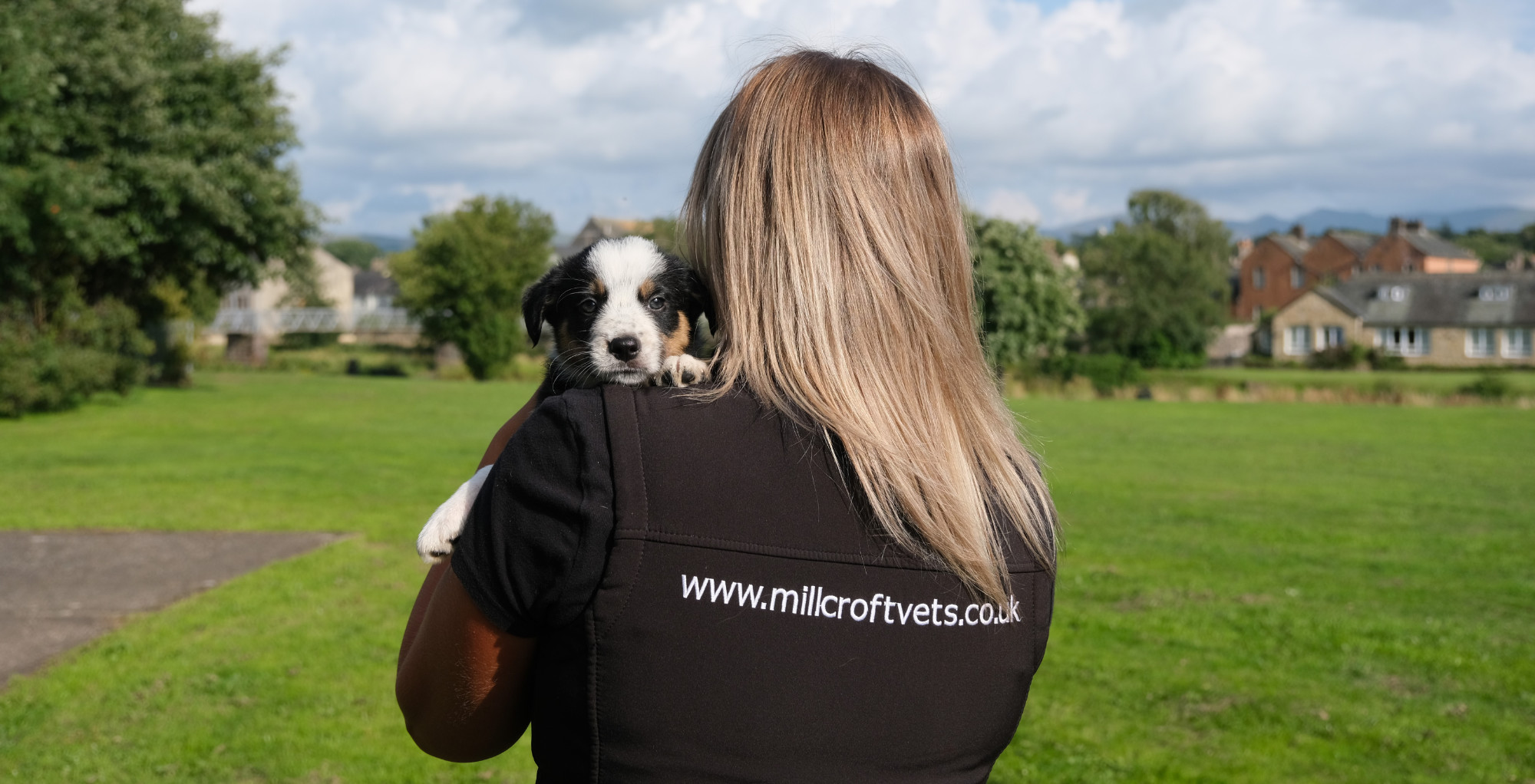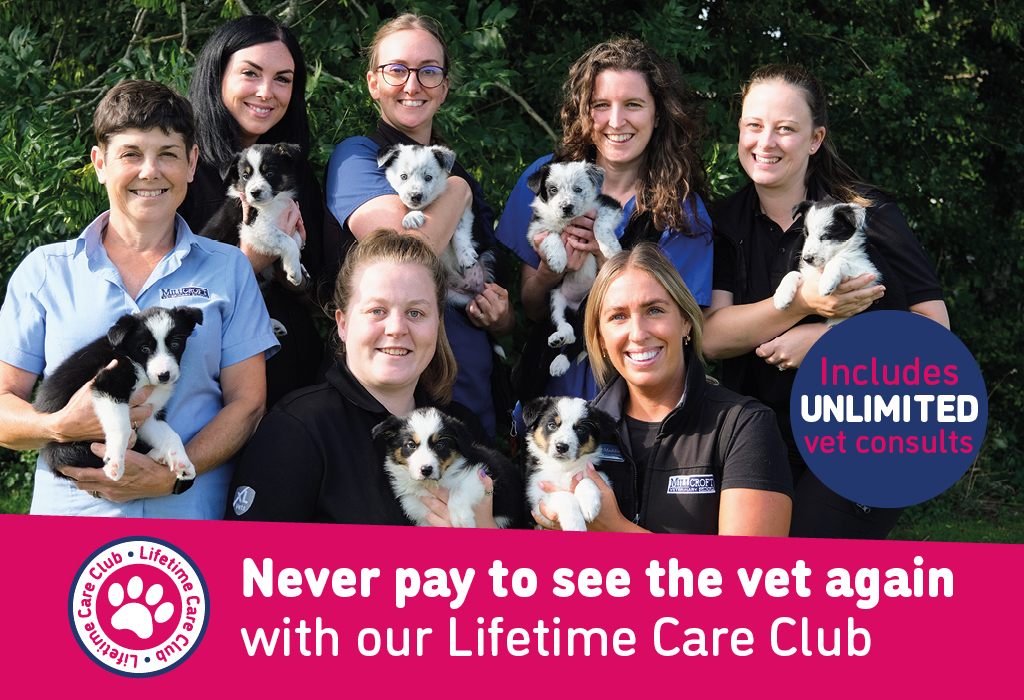
Congratulations from Millcroft on getting your new puppy!
Getting a new puppy is an exciting time, but it can also be a little daunting to know what to do to help your new little friend to develop while keeping them happy and healthy.
Here are some top tips for navigating those early months.
Feeding
It is crucial that you feed your puppy an appropriate diet to help them to grow and develop. Choose a good puppy food – often a breeder will give you food for the first few days, and it can be a good idea to continue with this diet as long as it is appropriate.
Dry food is generally better – and cheaper – than tinned food, and can be softened with warm water. There is no need to feed milk, mince, bones or anything other than your puppy biscuits.
If your pup is going to be a very big dog you should probably get puppy food designed for large breeds.
It is usually better to feed about four times a day initially, then gradually cut down to once or twice daily by about six months old. As for amounts, follow the guidelines on the side of the packaging according to your pup’s weight and give more as they grow.
Worming and other parasite treatments
All pups carry worms! It is very important to worm your pup every two to four weeks with a wormer that kills roundworms, especially if they have close contact with children.
Fleas and lice can affect puppies from any age and will also need protecting against.
Our team will advise you on exactly what you need at your first appointment.
Vaccinations
Once your pup has had its puppy course it will be protected from the main infectious diseases and can mix with other dogs from 11 weeks old.
It is important to bring your puppy in to see us when you get them so that we can begin their vaccination courses – which are free for members of our Lifetime Care Club.
After this your puppy will require a booster injection yearly to maintain this immunity.
Six month health check
All our puppies are entitled to a free health check at six months old. Do not miss this free health check! There are usually lots of questions to ask and health advice.
Insurance
We recommend that all of our clients get insurance for their pets. Most insurance policies also provide third party liability cover if your dog causes an accident. Check out the policies available and always read the small print.
Microchip
A microchip is a small chip placed below the skin in the neck and is a permanent way of identifying your dog, and is a legal requirement in the UK. Implanting a chip and registration can be done during your first vaccination courses and is free for all Lifetime Care Club members.
Teeth
It is a good idea to get your pup used to having their teeth cleaned. This becomes more important when they get their adult teeth from about four to six months of age. Brushing your dog's teeth is the most effective way of preventing dental problems in later life.
If you have any questions about any of the above or anything else please speak to our team at your next visit – you can book an appointment online today.





